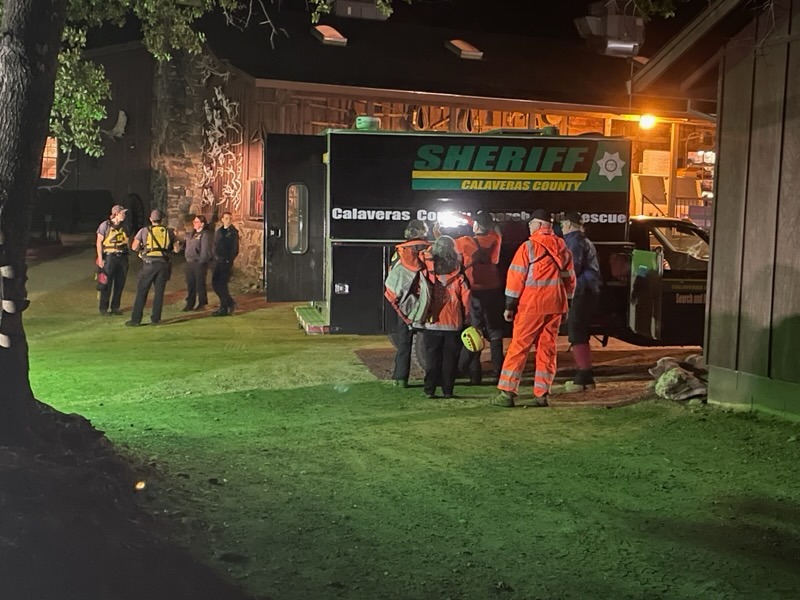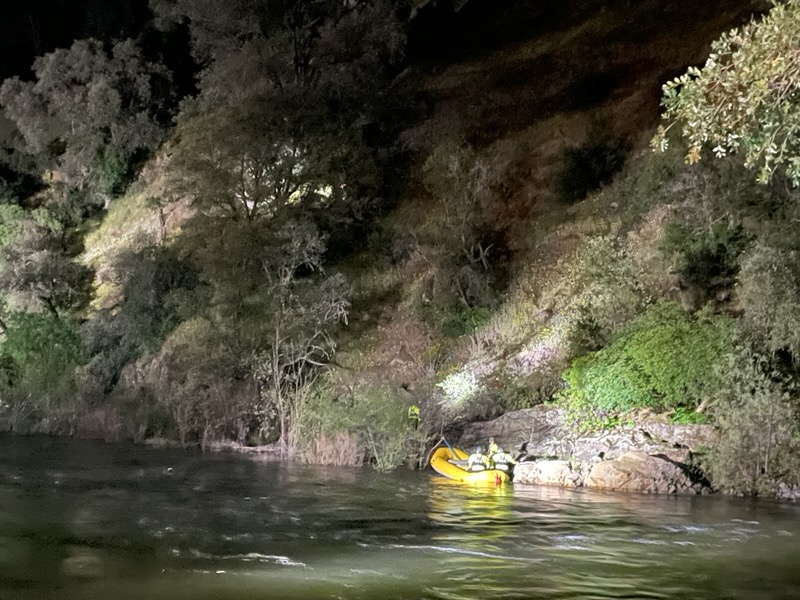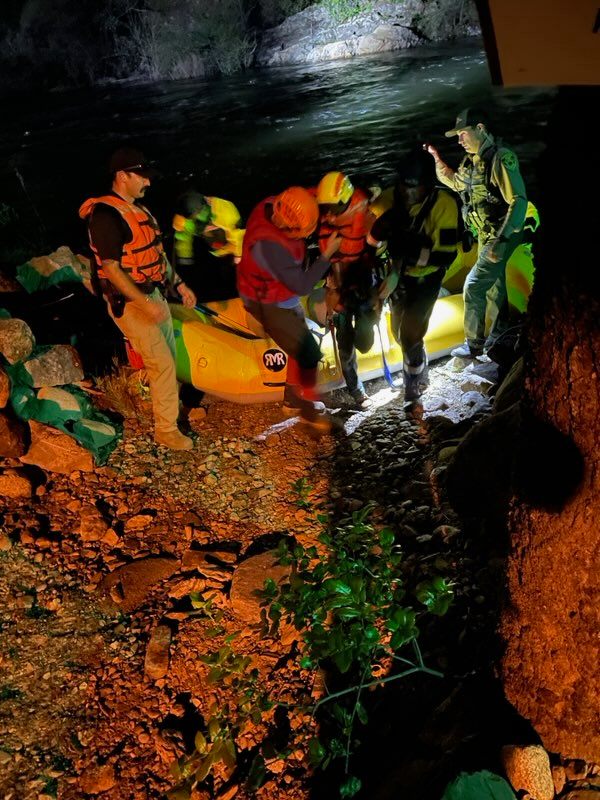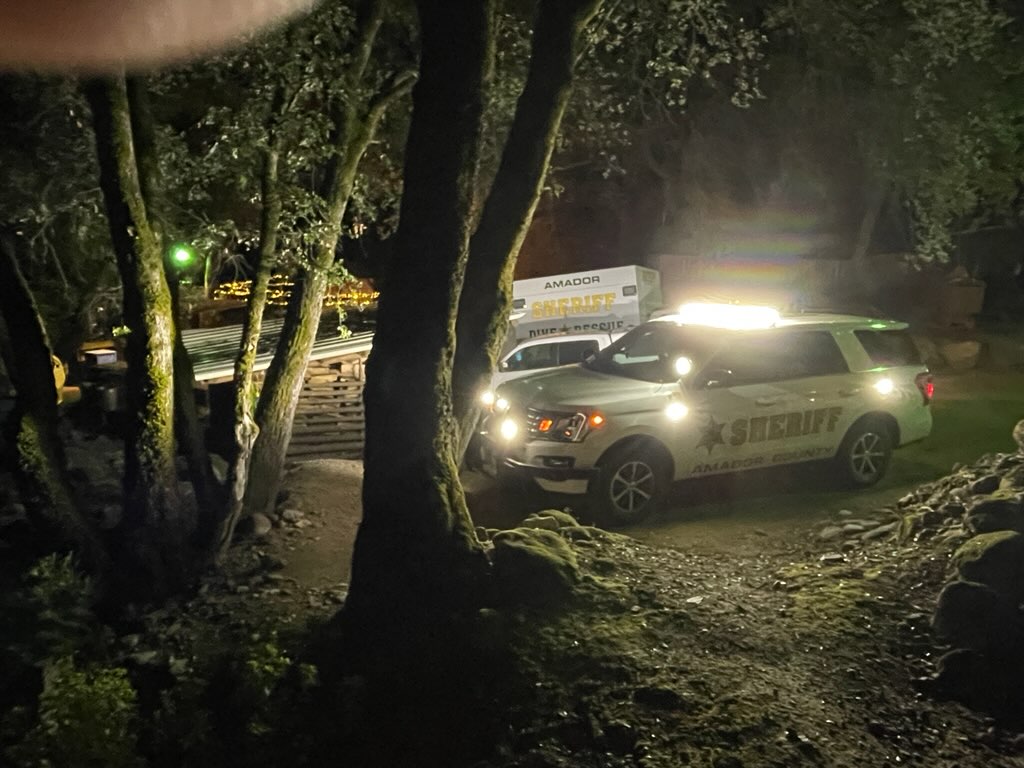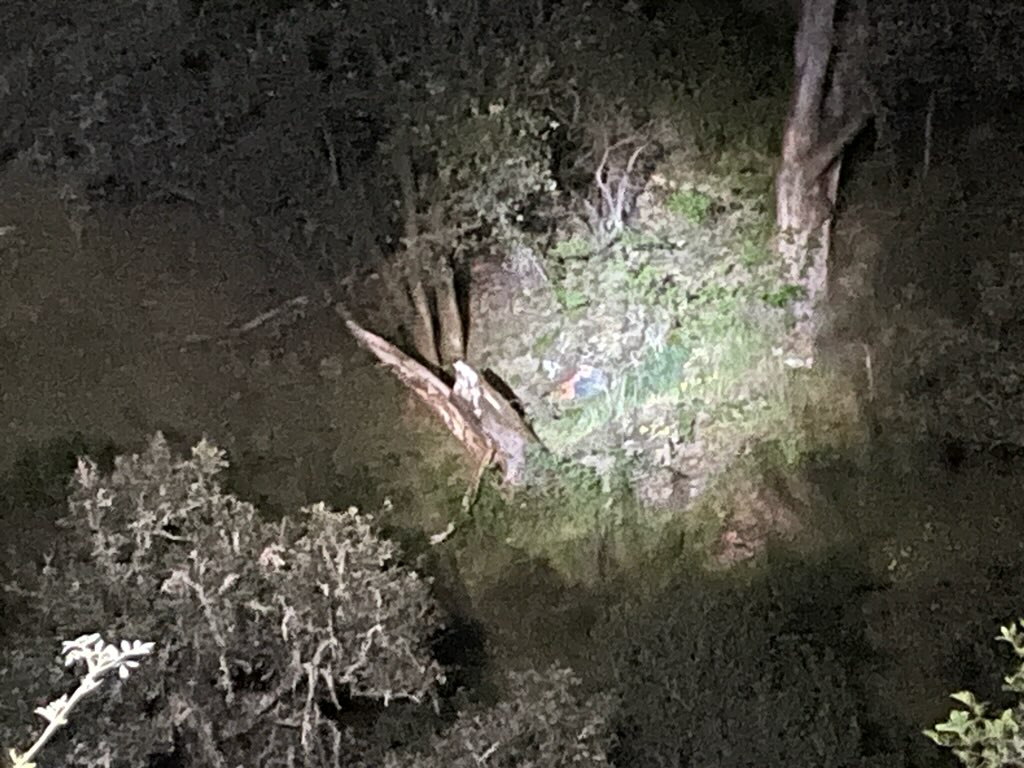West Point, CA…On May 1st, 2023, at about 5:00 PM, The Calaveras County Sheriff’s Office Search and Rescue Team was activated to search for a person reported missing while panning for gold along the North Fork of the Mokelumne River, West Point. At the time of the search, the river was experiencing a substantial flow due to the historic rain runoff and snow melt. Upon arrival, a command post was established with Amador County Sheriff’s Office to coordinate efforts and track resources.
Due to nightfall rapidly approaching and treacherous conditions that consisted of near-vertical slopes to the water’s edge, the decision was made to request air support from the California Highway Patrol and Stanislaus County Sheriff’s Office Air Division. While the helicopter was en-route, the Amador County Sheriff’s Office reported that an Amador Deputy, who was searching the area from the Amador side, could see a person on the Calaveras side of the river.
The Stanislaus Helicopter arrived and located the missing person about 4-5 miles downstream of his last known location. The missing subject was positioned on the Calaveras side of the river approximately 85′ up a steep, loose slope directly over the river. There was no access to the subject’s location from the Calaveras side of the river.
After thorough planning and preparation, the Calaveras County Search and Rescue Team and Amador County’s Sherriff’s Office Swiftwater Team devised an operational plan. The plan consisted of using the Amador County Search and Rescue Team’s river raft to transport two CCSAR members across the high-flowing North Fork of the Mokelumne River. The two CCSAR members ascended the cliff and built an anchor to secure rescue ropes. Once the rope system was in place, the rescuers accessed the subject, who was extremely cold and suffering from non-life-threatening injuries.
Using the rope system, the rescuers lowered the subject down the steep slope to the raft waiting below. The Amador County Team ferried the subject across the river to a waiting American Legion Ambulance, then returned to transport the CCSAR Team members across the river to the Amador County side. Throughout the operation, additional CCSAR members, Calaveras Deputies/Amador SO/Amador Fire, and Cal Fire personnel provided downstream safety operations, upstream spotting operations, and incident support operations.
The Calaveras County Sheriff’s Office would like to thank all allied agencies who assisted in this rescue mission. This was indeed a collaborative effort to rescue the missing subject safely. The level of risk involved with navigating the engorged river and high-angle rope rescue was mitigated by the high level of training, experience, and dedication to helping a person in distress by all who participated in the search.
PLEASE DO NOT ENTER rivers and streams experiencing abnormally high flow rates, as they are EXTREMELY dangerous. Your lack of caution could cost you more than a cold night on the side of a cliff. It could cost you your life.
Below are some tips to remember when recreating near bodies of water and river.
• Wear a properly fitted Personal Flotation Device (PFD) at all times when you are in or near the river. A life jacket can also provide some thermal protection against the onset of cold-water shock and keep you afloat until someone else can rescue you.
• Always swim within your own ability. Stay out of the deep or fast-moving water if you are not a strong swimmer.
• Carry a first aid kit and know how to use it. Learn or review medical aid responsibilities and learn CPR.
• Several bodies of water have varying topography, some with sharp drop-offs. Many unseen obstacles can be lurking below the water’s surface – this is especially the case during spring and early summer snowmelt. Rising water can make these obstacles even more treacherous. Enter the water feet first. Never dive headfirst into the water.
• If you become tired while trying to swim back to shore, try to calm yourself from fear to conserve energy and float on your back.
• Provide constant supervision for children or persons who do not swim well.
• Be prepared for extremes in weather, especially cold. Know about the dangers of hypothermia and how to deal with it. Know the early signs and symptoms of heat exhaustion and dehydration in hot weather.
• Cold water entering the ear canal can cause vertigo and disorientation. This may confuse swimmers, causing them to venture deeper into the water.
• Cold water also reduces body heat 25 to 30 times faster than air does at the same temperature, and causes impairment that can lead to fatalities.
• Do controlled breathing. Do not gasp for air. A sudden unexpected fall into cold water causes an involuntary gasp (or torso) reflex. It takes less than ½ cup of water in a person’s lungs to drown. When someone remains calm, he/she has a greater chance of self-rescue.



